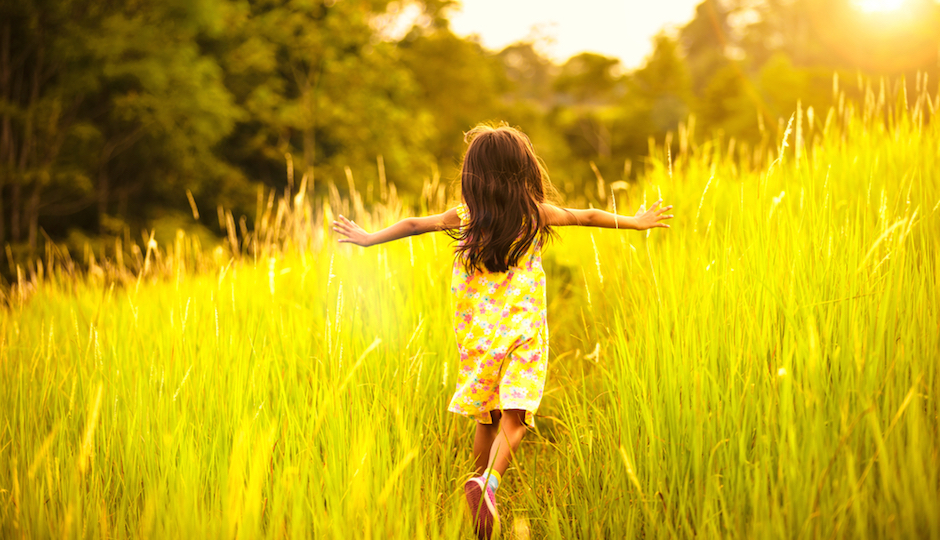The Argument for “Free-Range Kids”

Shutterstock.com
It’s been a couple of years now, but the shock still feels fresh: I took my young son to Fitler Square for some morning playtime, and there we found another young child.
Playing by herself.
No adults in sight.
Had she been abandoned? Had she wandered off on her own? Why wasn’t anybody around?
God help me, I wasn’t quite sure what to do. I resolved to stay close, keep an eye on her — and if too much time passed, I’d call the police. Luckily, it never came to that: Her father rushed up a few minutes later — he’d brought his daughter to the park, then left her there for a few minutes to grab something from his house nearby. He’d never thought her in danger. I kind of thought he was a giant jerk.
But this probably has some bearing on the story: The father was European — for the sake of neighborly relations, I’ll not identify him more specifically than that — and, possibly, not wise to the panicky “stranger danger” alarmism we American parents are marinated in.
I mention this because the culture wars have come to parenting again. At the center of the latest battle is the Meitiv family in Maryland, whose children (ages 10 and 6) were picked up by police after being found walking home, unsupervised, from a park about a mile away from their home. Defenders of the family have regaled us with stories about being able to play unsupervised in their neighborhoods as children; critics have suggested the parents are reckless.
Now: I’d always fancied I’d be one of those “free-range parents” I’d heard so much about, brave enough as a parent to give my child the space to wander and discover. But my reaction to the European father and his daughter made me wonder if I had it all wrong. And frankly, this has been a week when I’ve wanted to keep a tighter grip than ever on my son — the video of a 4-year-old boy darting into a Southwest Philly street, to his death, has made me want to leash my own 6-year-old and never let him go.
That’s not realistic, though. So I called Lenore Skenazy, a longtime writer, and the woman who actually pioneered the whole idea of free-range kids. She wrote a book about the idea after letting her 9-year-old son ride a New York subway home alone — and finding herself both celebrated and excoriated for it.
Spotting an unsupervised child these days “is like seeing an escaped gazelle,” she told me: It just doesn’t happen. And that’s too bad, she said: Despite all the fears, America is actually experiencing a 50-year-low in crime right now. “So basically, if you don’t think your mom was crazy to let you play outside when you were a kid, you’re not crazy to let your kid play outside,” she said.
The debate has turned Skenazy into a crusader of sorts. She’s created a website — FreeRangeFriend.com — that lets parents sign up and find other nearby parents to arrange, essentially, unsupervised play dates for their kids. “People worry when they see a kid alone in the park,” she said. “If there are 17 kids playing at the park, no one would call the police.”
She’s also created a “Free Range Kids and Parent Bill of Rights”: “Children have the right to some unsupervised time, and parents have the right to give it to them without getting arrested.”
Which sounds great! Except for this: I know the next time I see a young child alone in Fitler Square, my mental alarms are going to go off again. Maybe I’m too uptight to be a free-range parent?
Maybe not. Skenazy suggested that “free range” doesn’t imply the absence of kindly adults.
“The ironic thing is you have everything you need in Maryland to be Mayberry,” she said — pointing to the adults who reported the Meitiv children to the police themselves. If only they’d simply checked the children’s welfare and not elevated the matter to the level of criminal complaint, Skenazy said, all would’ve been fine: It’s great if “kindly adults” check on children to make sure they’re OK, and also OK to walk away if those children provide reasonable assurances that they’re doing well.
“There are eyes on our kids. You are the safety net,” Skenazy said. “I think that’s what we all used to do.”
This may be easier said than done. But I too have fond memories of walking to the park with my sisters, or exploring a creek with friends far from the sight of any adults. It would be a nice gift to give my own son.
“It’s a right we used to take for granted,” Skenazy said. “And it’s been taken away from us.”
Follow @JoelMMathis on Twitter.


